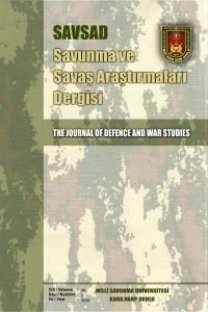İngilizce Öğretmenlerinin Proje Tabanlı Öğrenmeye Yönelik İnanç ve Tutumları
Yapılandırmacı yaklaşımın 2004 yılında benimsenmesi ile birlikte, Proje Tabanlı
Öğrenme gibi öğrenci merkezli öğrenme modelleri önem kazanmaya başlamıştır.
Proje Tabanlı Öğrenme, öğrencileri proje çalışmaları ve grup çalışmaları ile
bilgi keşfetmeye teşvik eden bir yöntemdir. Proje Tabanlı Öğrenme, öğrenciler
için işbirliğine dayalı bir öğrenme ortamı yaratarak sürece aktif olarak
katılmalarını sağlayan, proje sonunda bir ürünün meydana geldiği bir öğrenme
yöntemidir. Proje Tabanlı Öğrenme ile ilgili birçok çalışma olmasına rağmen,
öğretmenlerin Proje Tabanlı Öğrenmeye yönelik inançlarını ve tutumlarını
araştıran çalışmaların sayısı sınırlıdır. Bu nedenle, bu araştırma, İngilizce
öğretmenlerinin Proje Tabanlı Öğrenmeye yönelik tutum ve inançlarını
araştırmayı amaçlamaktadır. Bu çalışmaya toplamda 25 İngilizce öğretmeni
katılmıştır. Çalışmada nitel bir araştırma deseni kullanılmış ve veriler yarı
yapılandırılmış görüşmelerle toplanmıştır. Veri analizinde bölümünde içerik
analizi yöntemi kullanılmıştır. Araştırma sonuçlarına göre, katılımcı
öğretmenlerin Proje Tabanlı Öğrenmeye ilişkin olumlu inanç ve tutumları olduğu
sonucuna ulaşılmıştır. Ayrıca katılımcı öğretmenlerin Proje Tabanlı Öğrenmeyi,
geleneksel metotlarla kıyaslandığında daha etkili buldukları, sınıflarında
kullanmayı tercih ettikleri ve Türk okullarında uygulanmasını istedikleri de
ortaya çıkarılmıştır.
Anahtar Kelimeler:
proje tabanlı öğrenme, yabancı dil öğrenimi, öğretmen inanç ve tutumları, öğrenme modelleri
ENGLISH TEACHERS’ BELIEFS AND ATTITUDES TOWARDS PROJECT-BASED LEARNING
Since the
implementation of the constructivist approach in 2004, student-centered
learning models such as Project-Based Learning have started to gain importance.
Project-Based Learning is a method which promotes students to discover
information by project works and group works based on themes or topics unlike
specific language tasks. Project-Based Learning creates a cooperative learning environment
for learners and allows students to participate the process actively. A product
emerges at the end of the project. Although there are many studies about Project-Based
Learning, the number of studies investigating teachers' beliefs and attitudes
towards Project-Based Learning are limited. Therefore, this research aims to
explore the attitudes and beliefs of English teachers towards Project-Based
Learning. A total of 25 English teachers from Turkey
participated in this study. A qualitative research design was employed by the
researcher and the data was collected through semi-structured interviews. In data
analysis part, content analysis method was used. According
to the research results, it was found that participant teachers have positive beliefs
and attitudes towards Project-Based Learning. It has also been revealed that
participants find Project-Based Learning more effective when it is compared to
traditional methods, prefer to use it and want it to be implemented in Turkish
schools.
Keywords:
project-based learning, foreign language learning, teachers’ beliefs and attitudes, learning models,
___
- Açıkgöz, K.Ü. (2009). Aktif Öğrenme. İzmir: Eğitim Dünyası Yayınları
- Asım, A. R. I. (2012). Öğretmen Görüşlerine Göre İsviçre (Basel) ve Türkiye İlköğretim Programlarının Karşılaştırılması: Bir Durum Çalışması. Eskişehir Osmangazi Üniversitesi Sosyal Bilimler Dergisi, 13(1), 119-139. Babbie, Earl (2014). The Basics of Social Research (6th ed.). Belmont, California: Wadsworth Cengage. pp. 303–04. ISBN 9781133594147. OCLC 824081715.
- Baki, A., & Bütüner, S. Ö. (2009). Kırsal kesimdeki bir ilköğretim okulunda proje yürütme sürecinden yansımalar. İlköğretim Online, 8 (1), 146-158.
- Baysura, O. D., Altun, S., & Yucel-Toy, B. (2016). Perceptions of Teacher Candidates Regarding Project-Based Learning. Eurasian Journal of Educational Research, 62, 15-36.
- Beckett, G. H. (1999). Project-based instruction in a Canadian secondary school's ESL classes: Goals and evaluations (Doctoral dissertation, University of British Columbia).
- Beckett, G. H. (2002). Teacher and student evaluations of project-based instruction. TESL Canada journal, 52-66.
- Eyring, J. L. (1997). Is project work worth it? (ERIC Document Reproduction Service No. ED407838)
- Göçer, A. (2007). Türkçe öğretiminde ölçme ve değerlendirme. İlköğretimde Türkçe Öğretimi, Ankara: Pegem A Yayınları
- Gökçen, R. A. (2005). Instructors’ and administrators’ attitudes towards project work as an alternative assessment tool and as an instructional approach at Karadeniz Technical University School of Foreign Languages Department of Basic English. Unpublished Master’s Thesis, Bilkent University, Ankara, Turkey.
- Haines, S. (1989). Projects for the EFL Classroom: Resource Material for Teachers. Walton-on-Thames Surrey, UK: Nelson.
- Kemaloğlu, E. (2006). Project work: How well does it work? Assessments of students and teachers about main course project work at Yıldız Technical University School of Foreign Languages Basic English Department. Unpublished Master’s Thesis, Bilkent University, Ankara, Turkey.
- Patton, M. Q. (1990). Qualitative evaluation and research methods. SAGE Publications, inc.
- Sarwar, Z. (2002). Research on Project-based learning to facilitate learner autonomy. Unpublished draft. Revised for Publication (forthcoming, 2009). In English Language Education in South Asia: From Policy to Pedagogy, edited by L. Ferrel, UN Singh, and RA Giri.
- Stoller, F. (2002). Project work: A means to promote language and content. Methodology in language teaching: An anthology of current practice, 107-119.
- Subaşı-Dinçman, P. (2002). Teachers’ understandings of projects and portfolios at Hacettepe University School of Foreign Languages Basic English Division. Unpublished master's thesis, Bilkent University, Ankara, Turkey.
- Thomas, J. W. (2000). A review of research on project-based learning. San Rafael, California: Autodesk.
- Wilhelm, K. H. (1999). Collaborative dos and don'ts. TESOL journal, 8(2), 14-19.
- Wragg, E. C. (1999). An introduction to classroom observation. London: Routledge.
- Wrigley, H. S. (1998). Knowledge in action: The promise of project-based learning. Focus on Basics, 2(D), 13-17.
- Yıldız, F. (2009). The effects of project-based learning on student achievement in vocabulary learning on 6th grade students (Doctoral dissertation, DEÜ Eğitim Bilimleri Enstitüsü).
- ISSN: 2718-0301
- Yayın Aralığı: 2
- Başlangıç: 2006
- Yayıncı: MİLLİ SAVUNMA ÜNİVERSİTESİ > KARA HARP OKULU > DEKANLIK
